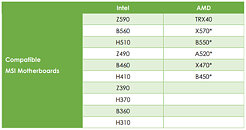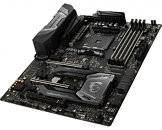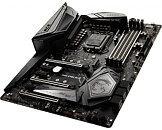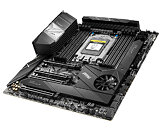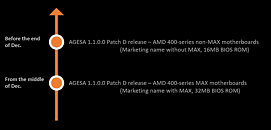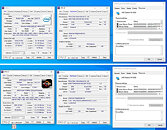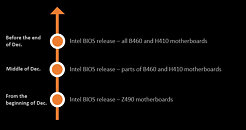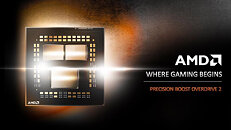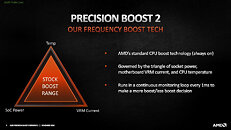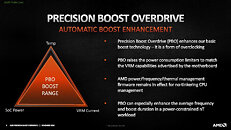
MSI Announces Full AMD 300-Series Motherboard Compatibility for Zen 3
MSI today announced that its full 300-series motherboard lineup, which includes A320, B350 and X370 chipset-based motherboards, now support AMD's latest Zen 3 CPUs in the Ryzen 5000 series. The full support will be backed into BIOSes developed under the latest AMD AGESA COMBO PI V2 1.2.0.7 BIOS, which MSI expect to rollout for its 300-series motherboards from the middle of May this year.
This announcement from MSI builds upon AMD's own promises of research into adding support for more recent Ryzen architectures towards even the beginning steps in its AM4 ecosystem. In theory, users rocking older motherboards can now take advantage of AMD's latest developments in power, performance, and core density, deeply increasing - and confirming - the value proposition of AMD's AM4 platform. Alongside the announcement, MSI has also pledged to launch a fix for fTPM-based stuttering issues present in 400-series and 500-series AM4 motherboards towards June.
This announcement from MSI builds upon AMD's own promises of research into adding support for more recent Ryzen architectures towards even the beginning steps in its AM4 ecosystem. In theory, users rocking older motherboards can now take advantage of AMD's latest developments in power, performance, and core density, deeply increasing - and confirming - the value proposition of AMD's AM4 platform. Alongside the announcement, MSI has also pledged to launch a fix for fTPM-based stuttering issues present in 400-series and 500-series AM4 motherboards towards June.






